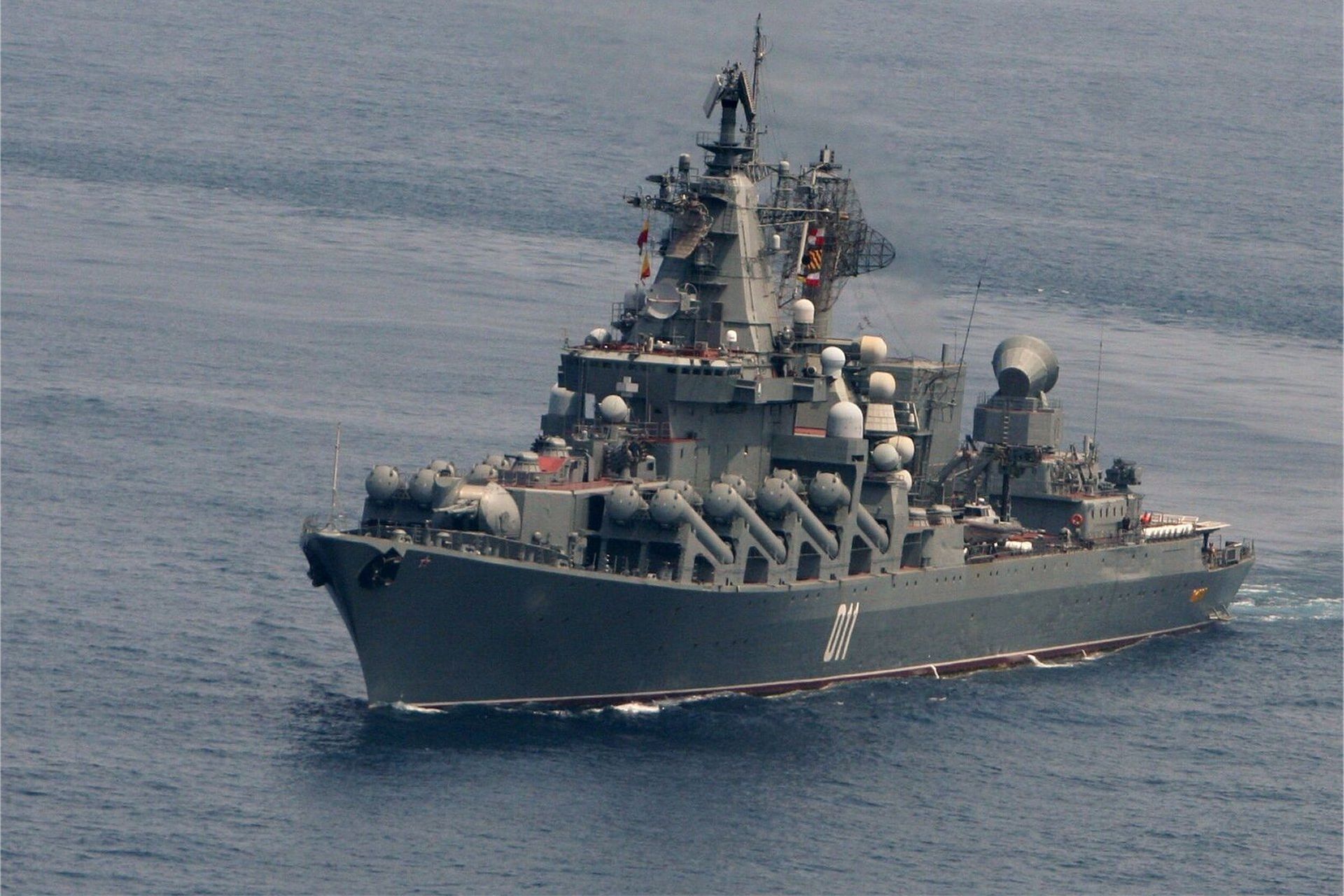Breaking News
Russian Pacific Fleet warships enter Malacca Strait begin Asia-Pacific transit.
According to information published by Russian sources on August 13, 2024, a detachment of ships from the Russian Pacific Fleet has entered the Malacca Strait as part of a long-range deployment. The task group, which includes the missile cruiser Varyag and the frigate Marshal Shaposhnikov, is now commencing its transit through the Asia-Pacific region.
Follow Army Recognition on Google News at this link

Russian Navy's Slava-class cruiser Varyag. (Picture source: Dzen)
One key element is Russia's focus on the Black Sea and the Mediterranean. Russia is intensifying its naval presence in the Black Sea, particularly through accelerated construction at the Ochamchire port in Abkhazia, a region in Georgia occupied by Russia.
This base is intended to enhance the operational capacity of the Black Sea Fleet, serving as a strategic outpost to project power and influence in the region, which is crucial for Russia's ability to exert control over maritime routes and counter NATO's influence.
In the Arctic, Russia is continuing its militarization efforts, seeking to secure control over the Northern Sea Route, which is becoming increasingly navigable due to climate change. This area is vital for Russia's ambitions to dominate emerging maritime trade routes and access untapped natural resources, particularly energy reserves.
Globally, Russia is leveraging its naval capabilities to extend its influence, particularly in regions like Africa and Latin America. In Africa, Russia's strategy involves using private military companies alongside its naval assets to secure political and economic footholds, particularly in resource-rich countries. This approach allows Russia to challenge Western influence at a lower cost than deploying traditional military forces.
Despite these strategic efforts, the Russian Navy faces significant challenges, particularly in its modernization programs. The Admiral Gorshkov-class frigates, intended to be the backbone of a modernized fleet, have revealed substantial shortcomings, reflecting broader issues in Russia's defense industry, such as technological gaps and financial constraints. These issues are likely to limit the effectiveness of Russia's naval power projection in the long term.


























